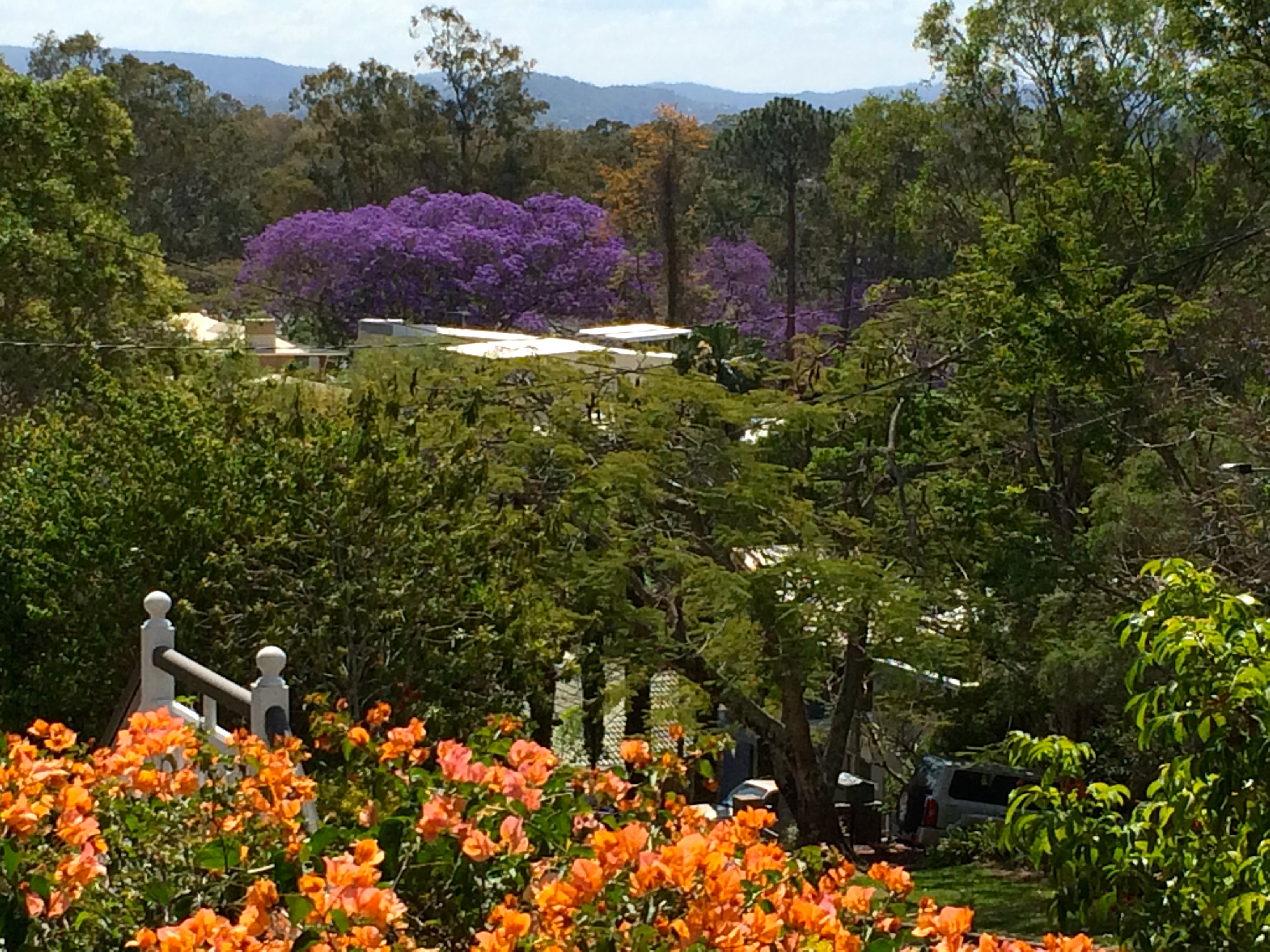Click Click. My chiropractor works away at my stiff neck.
”You know, you shouldn’t feel bad. A lot of Australians don’t know the names of trees or plants,’’ she says.
”Left arm forward, please.’’I lift my left arm.
Hmmm. My head is stuffed face down in the chiropractic table head rest. Click click. Click click.
”That reflects your interests, whether your interested in botany, not whether you belong or not.’’ she says. ”Right arm forward please.’’
I think about this at home as I survey the different plants and trees from the balcony of our 1934 Queenslander: jacaranda, frangipani, palms, lilly pillys, bird of paradise. We can even see a brown patch of the Brisbane River. I love this view. I stop and appreciate it every day, even when it’s 44 degrees celsius. The temperature is something I do not always love.
Here’s my theory. When you’re born into a country, you’re also born into the tastes and textures of a landscape. If you grow up with access to outside and to nature, you absorb it into your being. It becomes part of you whether you know the names or not.
When you move to a different landscape, you lose those natural unconscious references. Think of yourself in your favourite eucalypt forest, the dryness under your feet, the scratching of a brush turkey, the short screeches of rainbow lorikeets. Then imagine you’re in the dark greens of an Ontario forest, stepping around white flowered trilliums and moist rotting tree trunks and listening for the heavier sound of padded feet. After, step into the sand-scape of the maritime pine forests in les Landes in southwestern France. The thickness of the light, the sounds, the smells and the texture of the air will all be different.
It’s only now that I understand how much I learned about France simply because I was mastering the language. When I was trying to squeeze out slobbery sentences with subjunctive clauses, I was also learning about food, or culture, or history, or trees. That’s because when I asked about a word or a phrase, I usually got an answer that put them into a broader context. I learned not just the art of conjugaison, but where the words came from and their place in that particular culture.
I didn’t have to make an effort in Australia. I already speak English — although some people argue Australian slang is a different language but I’ll look into that later.
When I first came here almost 12 years ago, I was working as a journalist and learning a lot about Australia. Then I had children and I was learning about, well children. And nappies and vaccinations and first aide for broken arms and how to fake sanity with no family support and a husband who frequently worked overseas.
Not that that’s an excuse.
So now I’m building a relationship with nature here. I want to learn the language of this land. I want to be able to identify the bird calls around me or name a bush or spot a tree frog.
I want to click belonging into place.

